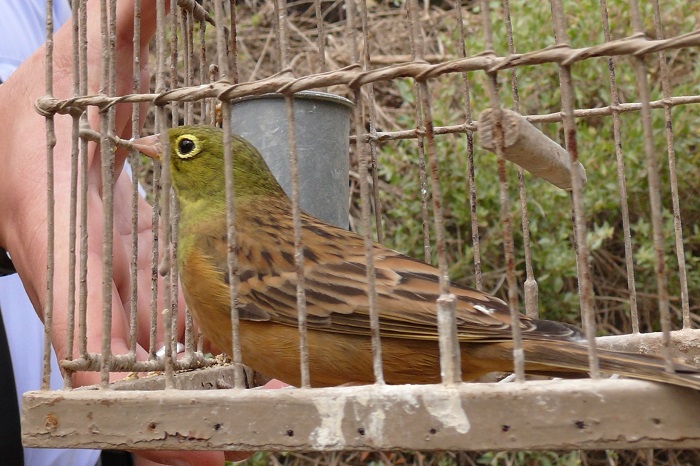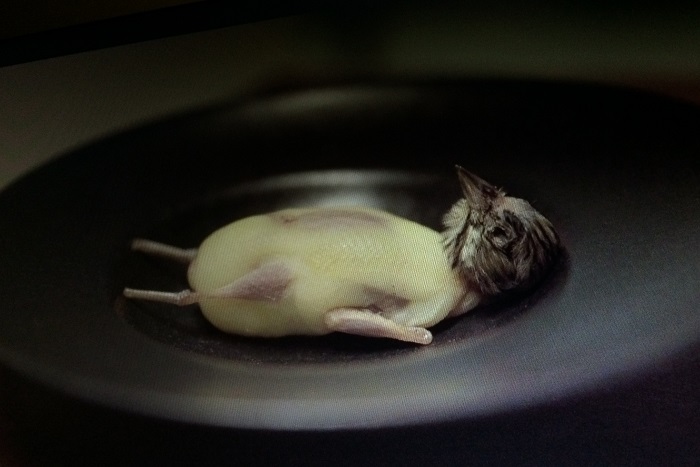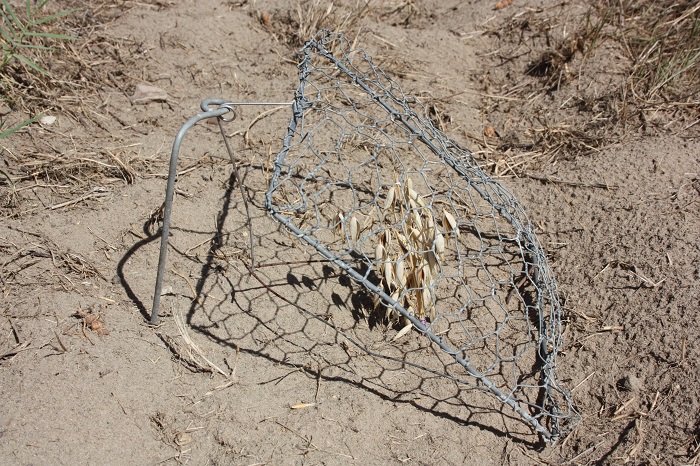Ortolan trapping at the foot of the Pyrenees

The Ortolan bunting is one of the rarest songbirds in Europe. The populations of the species in Central Europe are shrinking fast, in Germany the bunting species is now threatened with extinction. Gourmet diners in France are willing to pay a small fortune for an Ortolan on the table - the bird is a victim of destructive self-indulgence. Thankfully, after 10 years of our actions poaching is clearly decreasing.
Western European Ortolans fly to Africa over southern France in autumn. In the department of Les Landes, south of Bordeaux, the bird trappers are waiting longingly for their prey. Hidden in corn fields they set up small cage traps baited with live decoys in which other coveted birds are caught alive. Very few birds migrate directly to the kitchen: the poor birds are locked in cages and kept in the dark to disrupt their daily rhythm. It is said that some Ortolans even have their eyes burnt out to achieve the same effect. The confused birds start to eat all the time and double their weight within a few weeks. the fattened wild birds are then slaughtered and sold to restaurants.

Gourmet diners are enchanted by the taste of Ortolan. It is part of the ritual to lay a napkin over your head while eating the delicacy, so that you don't distract your neighbour with a blissfully distorted face and to ensure the pleasure remains an intimate culinary experience. Many famous personalities are associate in such circles, among them the French politician Allain Juppé and the late President Francois Mitterand. He even demanded Ortolan as one of his last meals before his death - and he got it!
Gourmets are prepared to spend several hundred euros on a single Ortolan fried in fat and cognac. It should come as no surprise that such profit margins mobilise many trappers. In the southwest of France, around 1,500 poachers specialise in Ortolan trapping. By 2015, between 40,000 and 80,000 of the rare bunting were caught annually, far more than the entire Central European population!

Ortolan trapping has been banned, not least because of a committee campaign against bird killing in the 1990s. We have been active in southern France since summer 2011, searching for trapping sites, collecting illegal traps and reporting poachers.
While in the first years of our bird protection camps in Les Landes in the authorities turned a blind eye to the bird trapping and even tried to sabotage our work, the police have since become active and supportive. Our campaign, launched together with our partner association LPO, has led to a rethink in Paris, and the pressure on local authorities and politicians is having an effect.
Although the raids in restaurants and the arrests of bird-trappers have so far been on a rather small scale, a start has been made. The number of active trapping points detected during our operations in Les Landes has fallen by more than 90% since then!






